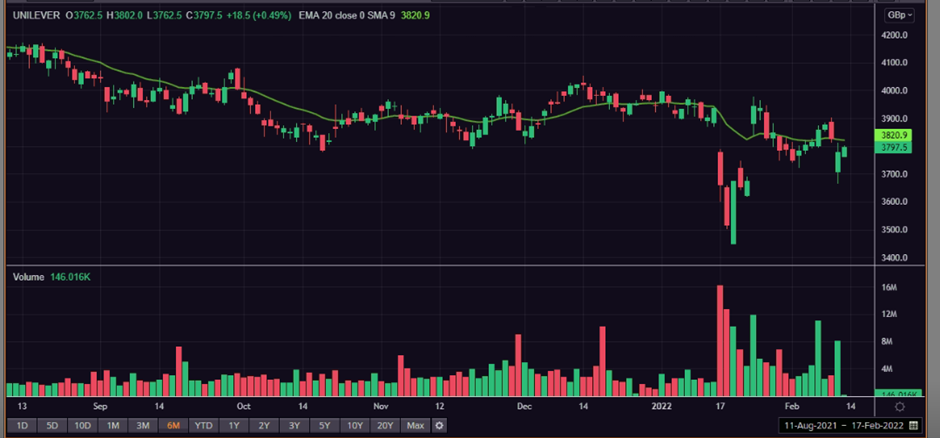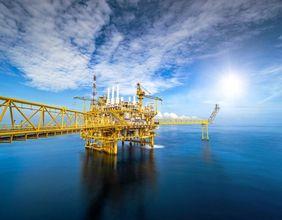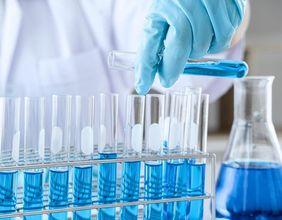Highlights
- FTSE100 listed consumer goods company Unilever Plc’s underlying operating profit increased by 2.9% to €9.6 billion in 2021.
- The company faced margins pressure due to a consistent rise in input costs.
FTSE100 listed consumer goods company, Unilever Plc (LON: ULVR), which operates across different product categories and owns famous brands like Dove and Lifebuoy, came up with an upbeat performance for the full-year 2021.
Full-year Result
The company, in its business update, reported an underlying sales growth of 4.5% in 2021, which was the fastest growth in nine years. The total turnover of the business was at €52.4 billion, with all key business divisions like Beauty & Personal Care (€21.9 bn), Home Care (€10.6 bn), Foods & Refreshment (€19.9 bn) contributing to overall revenue.
All the priority markets of the company, like China (14.3%), India (13.4%), and the US (3.7%), grew during the period. Also, sales through e-commerce were up by 44% and contributed 13% of total turnover. The underlying operating profit increased by 2.9% to €9.6 billion. However, the company faced margins pressure due to a consistent rise in input cost because of cost inflation witnessed across commodity, freight, and packaging segments.
The company has warned that the cost inflation will keep pressurising the business, and it could take another two years to reach the profitability levels of 2021.
The company’s management recently faced investor criticism for a failed £50 billion takeover bid for the GSK consumer healthcare in December 2021.
Key factors to focus on in 2022
- The company has a positive outlook for 2022 and expects its underlying sales growth to be 4.5%-6.5%. To tackle the rising cost inflation, the company plans to take pricing action, i.e. increase in product prices across different categories.
- In January 2022, the company announced plans to adopt a new organisational structure consisting of five business groups focused on different categories. Each group will be responsible for growth and profitability for that particular category. The new structure will lead to cost savings of €600 million over the next two years.
- Unilever Plc, a diversified business group with a portfolio of well-known brands, will find it easier to pass on higher pricing to its consumers as its products and brands are well-marketed and have a consistent demand from buyers. In the fourth quarter of 2021, underlying price growth was 4.9%, which resulted in higher underlying sales growth of 4.9% compared to 4.5% in the entire year.
Company showing sustained improvement
Over the years, there has been consistent improvement in the performance of the company. There has been improvement in key metrics like diluted earnings per share (€2.32 up by 9.2% since last year) and return on invested capital (ROIC) at 17.2%.
Moreover, the company’s board plans to undertake a share buyback program of up to €3 billion over the next two years. Unilever Plc consistently gives its shareholders dividends, and its current dividend yield stands at 3.9% as of 10 February 2022.
Stock performance

(Image Source: Refinitiv)
After the result announcement, the company’s stock price was in red and closed at GBX 3,779 on 10 February 2022. However, the stock has stabilised on Friday and is trading at 3,834.00, up by 1.46 per cent with a market cap of £96,778 million. The share price is down by over 2.5% since the start of the new year and is trading just a percent higher than its 52 week low. There are some concerns related to the management with the entry of activist investor Nelson Peltz. At the same time, rising raw material cost and margin issues may keep the upside stock movement under check in a near term.





